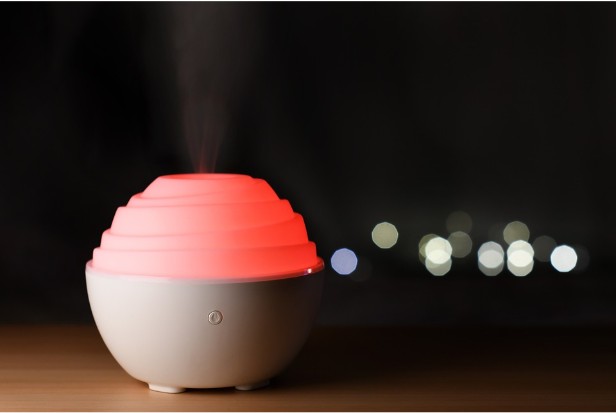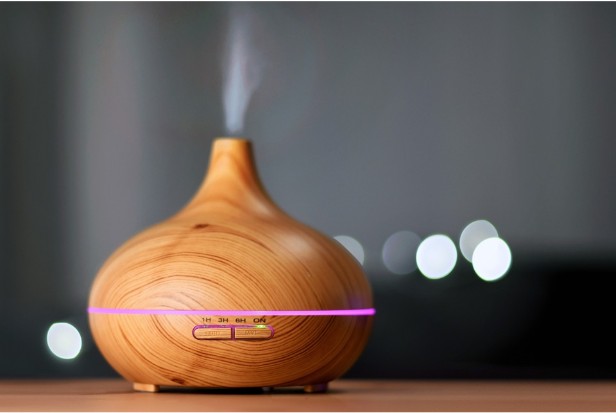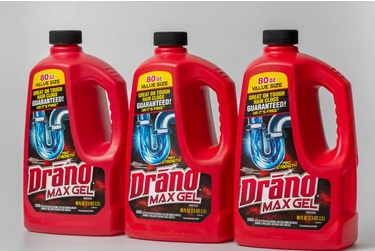This post will discuss whether are humidifiers good for pneumonia, how, why, and if humidifiers provide effective relief from pneumonia’s symptoms, and what the best humidifier is to use.
Pneumonia can strike at any time, is typically brought on by bacteria or viruses, and leaves its victims in great pain. Many people seek relief from the unpleasant cough that is brought on by this lung infection.
A humidifier is one of the many home remedies that can be found online, which is not surprising. As a result, you might be tempted to try one out if you have this illness.
However, this raises the question of whether humidifiers are beneficial for pneumonia.
Additionally, keep in mind that your cough might not be caused by pneumonia, particularly if you have a dry cough, a sore throat, or nasal congestion. These symptoms could be brought on by airborne allergens, an overabundance of dust mites, or other microorganism contaminants that have an impact on indoor air quality. You might also be suffering from bronchitis, the flu, or symptoms of a cold since the winter is considered to be flu season.
Continue reading if you want the solution. We’ll talk about how, why, and whether humidifiers actually help relieve the symptoms of pneumonia as well as which humidifier is the best to use.
Let’s dive in!
Table of Contents
What’s Pneumonia?
Let’s examine the condition more closely first. The lung is infected with pneumonia, which is typically brought on by bacteria or viruses. The lungs’ air sacs become inflamed as a result, and they may also swell up with fluid or pus.
The severity of anyone’s symptoms depends on a number of variables, including the cause, age, and general health, and can range from mild to severe.
Common symptoms are similar to those caused by a cold or fever and can include:
- Cough
- Fever
- Difficulty breathing
- Chills
- Chest Pain
- Coughing up Mucus
Other possible symptoms include a headache, extreme fatigue, and perspiration. In some cases, the symptoms extend to nausea, vomiting, or diarrhea.
Call your doctor if you are suffering any of these symptoms severely or if you suddenly start getting worse after the flu or cold.
Walking Pneumonia
Walking pneumonia is a milder form of pneumonia that is frequently brought on by a virus or the bacteria mycoplasma pneumonia.
It’s possible that the symptoms of a less severe case of pneumonia won’t be as bad or as long-lasting. There’s a chance you won’t need to visit the hospital or even adhere to strict bed rest.
The Causes of Pneumonia
Pneumonia is caused, in most cases, by:
Bacteria: A cold or the flu can be followed by bacterial pneumonia, which typically only affects one area of the lung.
Viruses that affect the respiratory tract: These include the flu virus that causes the common cold. Viral pneumonia typically has a milder course and clears up on its own within one to three weeks.
Fungal infections: For those with compromised immune systems in particular, these can result in pneumonia. Some fungi exist in the soil in certain parts of the US and can lead to pneumonia.
Aspiration: Particles from food, saliva, liquids, or vomit may infect your lungs and cause pneumonia if they are inhaled into your lungs.
Are Humidifiers Good for Pneumonia?
We will answer that question shortly. Let’s first examine the function of a humidifier.
In contrast to dehumidifiers, a humidifier operates differently. The latter removes moisture from the home. This usually serves to prevent mold or other harmful bacteria.
The quality of life can be improved by humidifiers, which raise the humidity in the house. In a dry region, adding moisture can making breathing easier and keep your nasal passages moist and combat dryness in the sinuses.
It’s important to remember that not all diseases benefit from increased indoor humidity. You should speak with your doctor or pharmacy if you’re unsure whether a humidifier will help you.
A medical pro can tell you whether your illness will improve with more humid conditions.
By maintaining the proper humidity in the air, a good ultrasonic humidifier will moisturize the nasal passages and airways.
Since this is frequently adjustable, the air quality can be changed to suit the needs of anyone with pneumonia.
The presence of humidity may make it easier to breathe and more comfortable for those who are ill. For this reason, humidifiers are frequently suggested as a treatment for the symptoms.
In the long run, humidification can enhance quality of life and serve as a low-cost method of treating respiratory illnesses. Pills and subscriptions, on the other hand, can get expensive.
Additionally, humidifiers can ease the symptoms of dry skin, cracked lips, irritated vocal cords, sinus congestion, headaches, dry throat, and stuffy noses.
Consider using a portable humidifier if you live in a dry climate to improve the quality of the air you breathe and to make it simpler to manage respiratory symptoms and discomforts.
Are There Risks to Using a Humidifier for Pneumonia?
When seeking care for a current and persistent illness, it is imperative to ask this question. If you’re introducing a humidifier to your home, the last thing you want to do is make your loved one more ill.
In other words, if the water tank is not thoroughly cleaned, there is some risk that humidifiers could grow bacteria, fungi, and mold. These, in turn, might be breathed in by the family and make them sick. However, this development is entirely preventable by cleaning the humidifier regularly.
To accomplish this, immerse all humidifier components that come in contact with water in a 10% bleach solution.
To prevent mold or other bacteria from growing, this needs to be done every two to three days. You won’t need to be concerned about any risks if you maintain a good cleaning routine to keep the humidifier secure and sanitary.
White dust is a potential problem as well. This comes naturally from mineral deposits in normal tap water if you use an ultra-sonic humidifier. You can prevent white dust by using distilled water.
So let’s recap: A humidifier won’t make you get pneumonia. Bacteria does. There are no risks if you keep your machine clean.

Should You Use a Humidifier to Ease Pneumonia?
Consult a doctor for guidance on pneumonia treatment if your symptoms are severe. The truth is that while humidifiers may offer some relief, they cannot treat the underlying cause of the condition or lessen the severity of its symptoms.
If you live in an arid area and the air is irritating your throat, a humidifier may be a great way to improve the air conditions and make you more comfortable. The humidity has a similar effect to a hot bath in that it can open up the nasal passages and ease breathing.
If the humidity in the bathroom relieves your symptoms, there is a good chance a humidifier, too, may benefit you. If it works, that’s all the scientific backup you need!
Just be sure to clean your humidifier frequently to avoid a buildup of bacteria and mold that might get into the air. A cost-effective solution for increasing the general breathability of the air in your home or office is to use a humidifier.
Read more: Can Air Conditioner Help Dehumidify My House? Why?
Does a Humidifier Help With Walking Pneumonia?
Smaller, more manageable symptoms of walking pneumonia are frequently present and can be treated at home. To improve your symptoms, make sure you:
- Permit yourself to rest so that your body has the energy its needs to fight the infection
- Drink plenty of fluids to keep hydrated – warm tea, clear soups and water are best for this
- Keep up a healthy, balanced diet that includes plenty of vitamin C. Fruit and vegetables, especially citrus, are a great addition to your diet during a cold and can also strengthen your immune system to prevent further illness
- If you smoke, stop, and avoid second-hand smoke
- Stay at home – don’t go to school or work until your symptoms go away
You can use a cool-mist humidifier or take a warm bath to help clear your lungs and make it easier to breathe.
Cool Mist Humidifiers
The relationship between variations in daily temperature and pneumonia cases over a six-year period was examined in a 2019 South Korean study. They discovered that “pneumonia weather” is a real occurrence after researching over 217,000 Seoul patients.
Cases usually spike when the weather suddenly gets warm. But only when the temperature increased by six degrees in a single day did this occur. People are actually shielded from getting sick by temperatures higher than this.
This led to the hypothesis that as soon as the temperature increased, people would start dressing for warmer weather and experience cold shock in the still-relatively cold temperatures.
The conclusion is that pneumonia occurs when the temperature suddenly drops, or when there is a sudden shock of cold.
If you’re worried about cool mist humidifiers for this very reason, you can rest easy. They are far too small to cause a sudden cold shock, and turning them off will take care of the issue.
This means that using humidifiers to treat the symptoms of pneumonia is safe.
According to statistics, these humidifiers have a negligible impact on pneumonia. But if it helps ease your symptoms, keep using it!
Examples of Some Recommended Humidifiers for Pneumonia
Pneumonia and cough can be aggravated by low humidity. Therefore, when looking for a humidifier that will reduce disease symptoms, it is advised to choose the best humidifier brands.
Choose a cool-mist humidifier because it has a variety of benefits if you have to choose what kind of humidifier to purchase. Here are some of the best humidifiers brands that you should consider:
- Vicks
- LEVOITS
- BONECO
- Honeywell
- Adorable Crane
How to Prevent Pneumonia
Preventing pneumonia in the first place is the most efficient method of treatment. Fortunately, there are steps you can take to guard against this illness.
These include:
Getting your yearly flu shot – Bacterial pneumonia can develop after suffering from the flu. So it makes sense that getting your vaccination will lower your risk of developing pneumonia.
Get vaccinated against pneumococcal bacteria, as it greatly reduces the risk of developing pneumonia.
Maintain cleanliness by frequently washing your hands with soap, hot water, and alcohol-based hand sanitizers (over 60%), especially if you’ve come into contact with anyone who is sick.
As you likely already know, smoking harms your lungs and makes it more difficult to breathe.
Adopt a healthy lifestyle! Maintaining a strong immune system requires a well-balanced diet, regular exercise, and plenty of sleep. In this manner, even if you do contract pneumonia, you can recuperate much faster.
Avoid sick people. Be sensible around people who are suffering. Avoid contact and wash your hands before you interact.
How to Treat Pneumonia
The severity of your symptoms and how you got the illness will determine how you should be treated for pneumonia.
Your doctor will probably recommend antibiotics if you have bacterial pneumonia. Follow your doctor’s instructions carefully and take all the antibiotic medicine prescribed.
Antibiotics don’t work against viral pneumatic infections, so your doctor may recommend over-the-counter medicines to lower a fever, ease a cough, or relieve pain.
Before taking a cough suppressant, talk to a doctor or pharmacist because some coughing can be beneficial to clearing the lungs.
You might be given antifungal medication if a fungus was the cause of your pneumonia. Hospitalization may be necessary if you have a severe case of pneumonia and are having trouble breathing.
However, in cases where the illness is milder, rest and recovery are frequently all that are necessary. The best course of action in milder cases or cases of walking pneumonia is to continue resting, eating well, and maintaining a hygienic home environment.
Utilize over-the-counter medications to relieve symptoms and take vitamin C to boost your defenses.
Last but not least, one of the best ways to make you or a loved one more comfortable is to manage the air’s humidity. With the help of a humidifier, dry air can be removed, irritation can be relieved, swelling can be reduced, and the lungs can clear.
This is comparable to another well-liked at-home treatment for respiratory ailments. Numerous people advise taking a hot bath in order to help moisten the nasal passages with the air’s steam. In the same vein, humidifiers can ease some symptoms.
Conclusion: Humidifiers Are Good for Pneumonia
Finally, the answer is yes, humidifiers are good for pneumonia. If you are previously in doubt about the usefulness of a humidifier when it comes to relieving you from pneumonia symptoms, you should no longer be skeptical about its usefulness.
Never forget to keep your equipment clean by removing any debris or other items that could harm it. In this manner, the humidifier will effectively help you recover from pneumonia symptoms. Additionally, since vaporizers can result in burns, you should choose a cool-mist humidifier instead.


MOST COMMENTED
How to
How to Clean Homedics Humidifier: Detailed Guide
How to
Are Humidifiers Good for Pneumonia? Complete Guide
How to
Can You Put Drano in a Dishwasher? (Facts & Safe Alternative)
How to
How to Turn Subtitles on Or Off on Peacock TV: 2023 Guide
How to
How to Get Rid of Hollow Arrow on iPhone? 2 Simple Ways
How to
How to Mirror iPhone to TV Without WiFi: Complete Guide
Computers, Tablets & Printers
The 5 Best Printers for Cricut in 2022